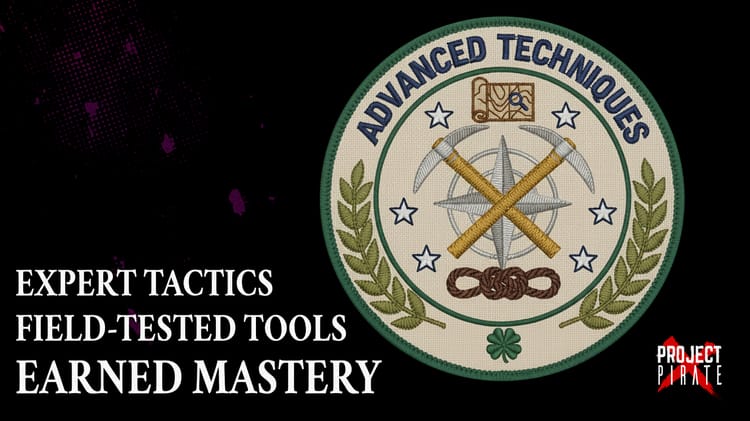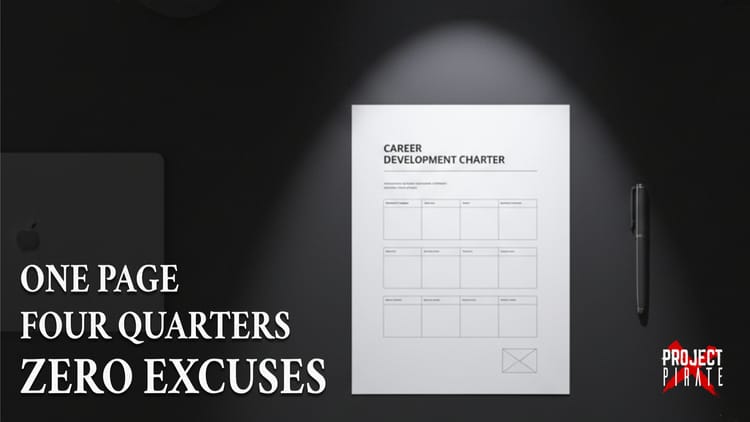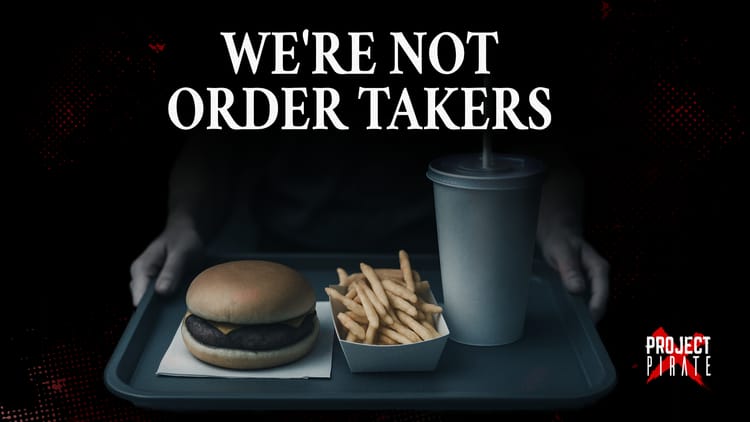The Career Paradox: Managing Projects with Rigour, Careers with Hope
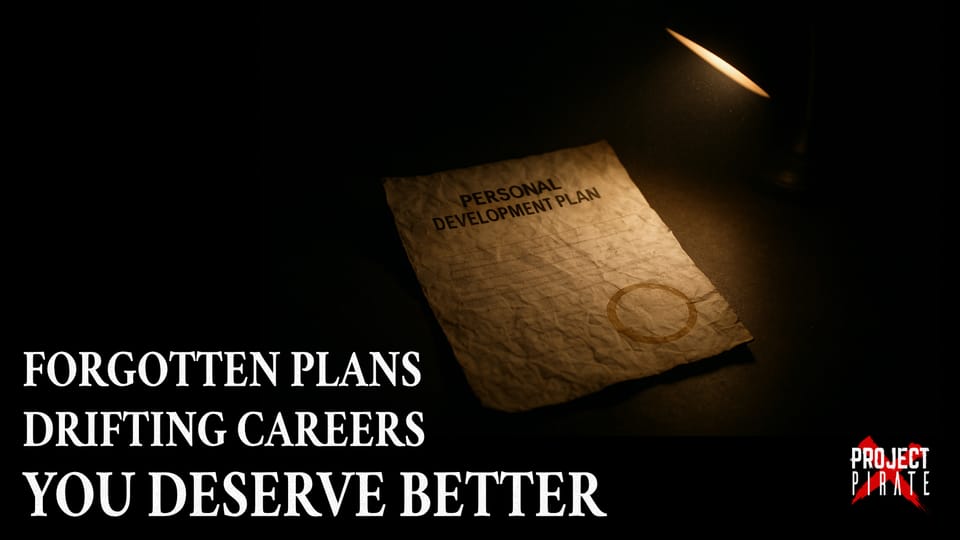
The surprising gap between professional excellence and personal drift.
Most professionals (even the best ones) manage their careers with less discipline than they demand from their teams. They optimise budgets, manage complex stakeholders and deliver results under pressure. Yet when it comes to their own development, they operate like someone who's never heard of strategic planning.
For Project Managers who excel at complex deliveries, the irony is even starker: you turn chaos into coordinated success at work, yet neglect the most important project you'll ever manage... yourself!
This disconnect isn't just ironic - it's expensive, both for individuals and the organisations that depend on their continued growth.
The Discipline Gap
What does good management look like? Clear objectives tied to business outcomes. Detailed work breakdown structures. Resource allocation based on critical path analysis. Regular progress reviews with stakeholder alignment. Risk registers that anticipate problems before they derail delivery.
Yet when it comes to career progression, even the most disciplined professionals operate like first-year trainees. They rely on vague aspirations stored in forgotten folders. Annual reviews surprise them with their arrival. Development activities are chosen by convenience rather than strategic impact.
You create a PDP (Personal Development Plan), store it in some folder somewhere, and occasionally revisit it when someone asks how you're doing against your goals. This is task completion theatre. Targets slip. Work takes priority. "I'll do it later" syndrome sets in.. and you wonder why you don't advance to the roles that match your capabilities.
Sponsor and Agent
If you treated your own personal development plan as you would a project you were leading, would you be happy with the outcomes? After all, you're both the sponsor and the agent of change.
Think about it:
- Would you accept the same level of planning from your project teams that you apply to your own growth?
- Would you tolerate the resource allocation decisions you make about your development time?
- Would you sign off on a project with such vague success criteria and sporadic progress reviews?
The answer, if you're honest, is no. You wouldn't tolerate this from your teams. You'd demand better planning, clearer priorities and real accountability. Why accept less from yourself?
Apply Real Rigour
So what would change if you applied the same methodological discipline to your career that successful managers demand from their teams? If you examined how to extract maximum value from your invested time to accelerate progress towards advancement goals?
In project management, we understand that planning fundamentals transform delivery outcomes. The same principles apply to career development:
Clear Scope Definition: Instead of vague aspirations like "become a better leader," you'd define specific, measurable outcomes tied to advancement criteria in your organisation.
Dependency Mapping: You'd understand which experiences must be gained before others become accessible, and which capabilities can be developed in parallel.
Resource Allocation: You'd make conscious decisions about where to invest your limited time and energy based on career impact rather than convenience or availability.
Progress Tracking: You'd measure advancement with the same precision successful managers demand from their teams.
Risk Management: You'd identify what could derail your progression and build mitigation strategies rather than hoping obstacles won't appear. How do you prevent time sink on non-priority activities? How do you carve out protected time for development when operational demands compete for attention?
Advanced Techniques
Once you've mastered the basics, consider critical path drag analysis - a technique that identifies which single constraint is limiting your timeline and where investment yields maximum acceleration (developed by Stephen Devaux). Applied to career development, instead of spreading effort across multiple development areas, you'd focus intensively on the one constraint that's genuinely holding you back from the next level.
This represents a broader principle: sophisticated professionals can achieve genuine transformation by applying advanced optimisation techniques to their own advancement. (Part 4 will explore a variety of advanced methods in depth, showing how to identify and eliminate your career's critical constraints.)
What would that enable? The ability to amplify and accelerate your journey towards the roles you're capable of handling. Maybe even help you surpass what you originally thought possible.
Imagine having the analytical precision to identify:
- Which networking activities would actually advance your career versus which just feel social?
- Whether that certification you're considering would genuinely unlock advancement opportunities or simply add another credential without impact?
- Which leadership experiences would build the specific capabilities decision-makers value for the roles you want?
- Where would investing additional time in stakeholder relationship building compress your timeline to advancement?
This level of optimisation could transform not just how fast you advance, but the trajectory of your entire career.
The Navigator's Advantage
Stephen Covey urged us to 'begin with the end in mind' - what will you be remembered for? Every individual leaves a legacy. That legacy doesn't have to carry a capital L, but we all leave one. We all make a difference to those we meet along our journey... some through fair weather, others through storms. That difference can be intentional or accidental.
This journey towards self-development is worthy of the best captains and explorers. Think of the navigator you would become; someone who charts courses not just through business complexities, but through the shifting landscape of professional advancement.
Every day offers the gift of reinvention. The future consists of endless possibilities, built on cause and effect, energy in equalling energy out. Some investments generate immediate momentum. Others require sustained effort before yielding results. It might be hard to see progress, but we push ahead because sometimes, just sometimes, a glint of light becomes visible on the horizon.
You'd approach career challenges with both the intuition of experience and the precision of method. You'd invest energy where it multiplies rather than where it merely accumulates. You'd become someone who treats their own advancement with the same discipline they apply to their most critical responsibilities.
The treasure? Unimaginable.
Not just faster advancement, but the confidence that comes from knowing you're optimising your trajectory rather than hoping for the best. The compound benefits of investment in capabilities that align with where organisations are heading. The professional satisfaction of conscious career development rather than accidental progression.
The methodologies are proven. The frameworks exist. The compass is in your hands. The only question is: will you chart the course, or be carried wherever the tide takes you?
In Part 2, I'll introduce how to build your Career Development Charter - a visual tool that replaces forgotten PDPs with active management. Then in Part 3, we'll explore the five disciplines that transform your charter into systematic advancement.
